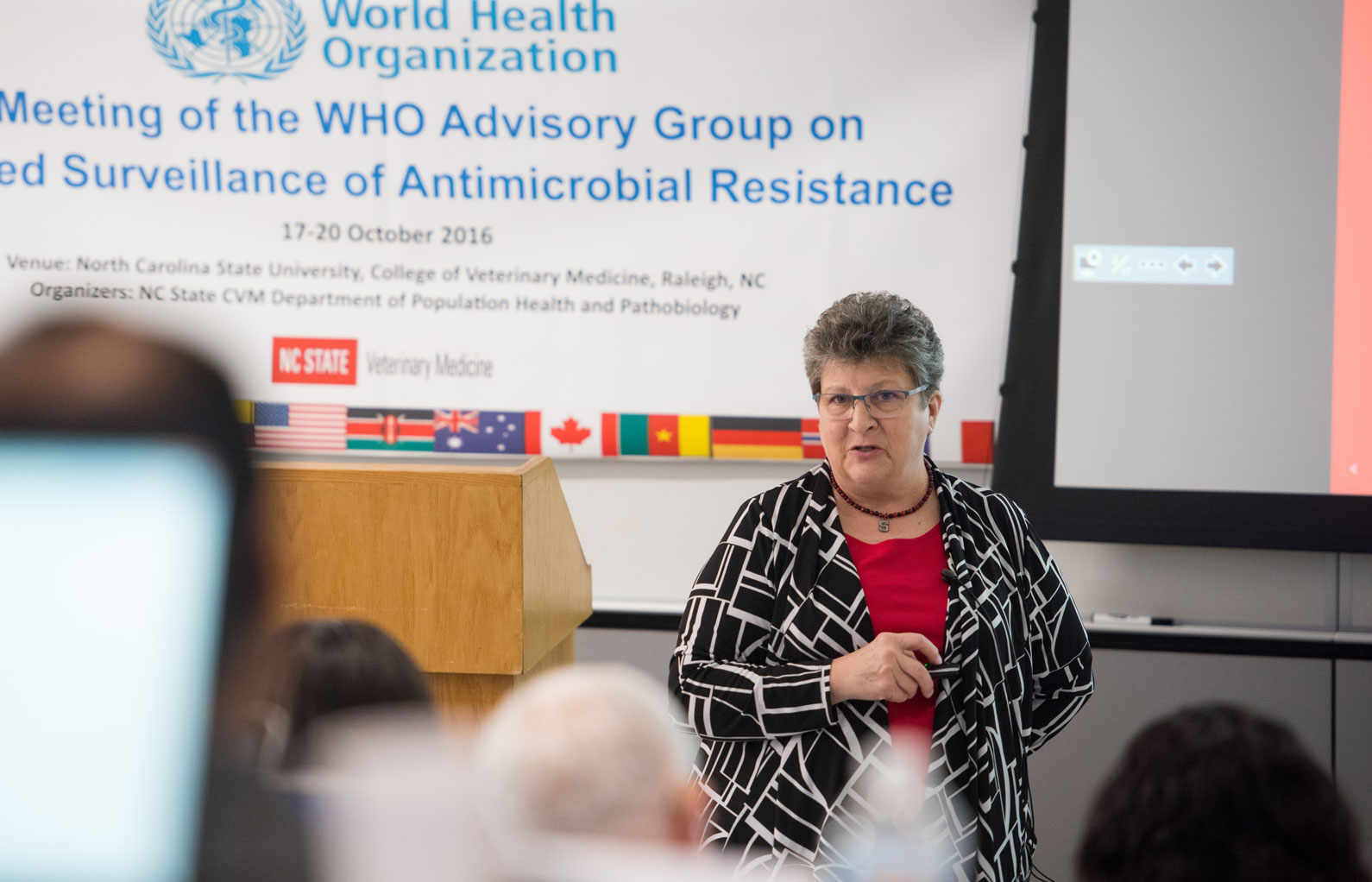World Health Organization Launches Antimicrobial Resistance Surveillance Program Co-Developed at NC State

The World Health Organization (WHO) has adopted a new approach to surveilling global antimicrobial resistance developed in partnership with the NC State College of Veterinary Medicine.
The procedure, dubbed the “tricycle protocol,” is based on one indicator — extended-spectrum beta-lactamase-producing Escherichia coli. The “tricycle” name refers to a three-pronged approach, comparing the prevalence of ESBL-producing E. coli in humans, animals and the environment between different countries, according to a WHO statement.
Countries following the protocol join a National Integrated Surveillance System on antimicrobial resistance (AMR). WHO is distributing the protocol through regional and country offices.
The CVM helped lead the protocol development as part of its role as a designated WHO collaborating center to combat AMR. The college is one of 18 centers worldwide focused on AMR.
A recently published paper in the Journal of Clinical Microbiology outlined the new surveillance protocol. CVM co-authors of the research are Paula Cray, head of the Department of Population Health and Pathobiology (PHP); Megan Jacob, associate professor of clinical microbiology and director of Diagnostic Laboratories; and Shivaramu Keelara, research assistant professor in the PHP department.

“This is so much bigger than us putting out a research publication or obtaining a grant,” said Jacob last fall after the research paper was released. “Those have value. But what we’re ultimately creating is something that people can use across the globe to contribute data where we haven’t had it before so we can all make better decisions. That’s really powerful and humbling to be associated with.”
WHO has declared AMR to be “one the top 10 global public health risks facing humanity,” impacting everything from the ability to treat life-threatening illnesses to the safety of the world’s food and water supplies. By 2050, it’s estimated that deaths related to antimicrobial resistance will hit 10 million, higher than the 8.2 million deaths today caused by cancer.
NC State Veterinary Medicine has established itself as a global authority in fighting AMR. The college is the only place in the United States home to two large national monitoring systems: GenomeTrakr, launched by the United States Food and Drug Administration in 2012, and the National Antimicrobial Resistance Monitoring System (NARMS), established in 1996 by the FDA, the Centers for Disease Control and the United States Department of Agriculture.
GenomeTrakr is a network of laboratories identifying pathogens using whole genome sequencing. NARMS monitors drug resistance trends and bacterial strains from humans and good animals, pinpointing emerging resistance.
Both programs at the college are overseen by Sid Thakur, director of global health at the CVM and NC State. Combating infectious disease and antimicrobial resistance are central focuses of the CVM’s global health program.
What we’re ultimately creating is something that people can use across the globe to contribute data where we haven’t had it before so we can all make better decisions. That’s really powerful and humbling to be associated with.
Last fall, the CVM announced that it is working with the University of North Carolina at Chapel Hill on work to stem the tide of AMR in Malawi, the first time the CVM is actively collaborating with the long-running UNC-Project Malawi.
The CVM is leading the animal health aspect of the project, which includes establishing effective ways to identify AMR, training in-country scientists and integrated new monitoring procedures such as the tricycle protocol
“It’s not going to just stop suddenly at one point,” Keelara said when the CVM’s role in UNC Project-Malawi was announced last fall. “We need to have a constant effort in combating these issues right now.”
~Jordan Bartel/NC State Veterinary Medicine


